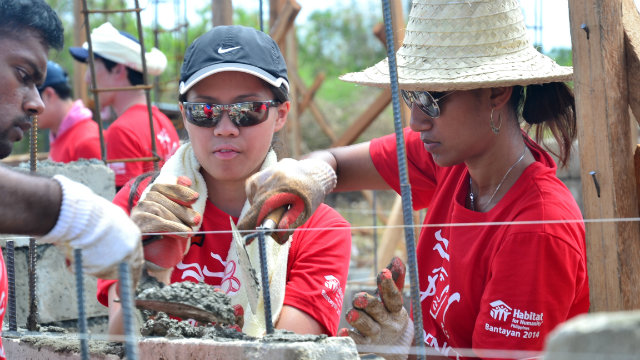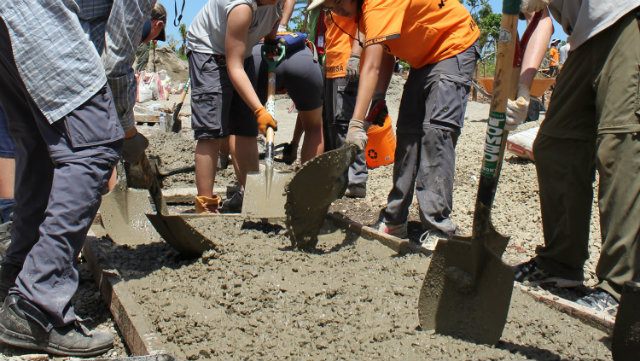SUMMARY
This is AI generated summarization, which may have errors. For context, always refer to the full article.
 (Editor’s note: We are republishing this piece in the wake of another milestone for the Philippines – the birth of the 100 millionth Filipino. The article first came out on July 10, 2014.)
(Editor’s note: We are republishing this piece in the wake of another milestone for the Philippines – the birth of the 100 millionth Filipino. The article first came out on July 10, 2014.)
By the end of 2014, elections will have been held in Bangladesh, Indonesia, India, Japan and hopefully Thailand. In 2016, the Philippines is set for its national elections where it will seat the 16th president of the Republic, along with several other key leaders.
In the coming years, there will be new leaders in Asia and the Philippines ready to tackle the challenges facing their nations.
One of the greatest challenges will be how and where to house the region’s growing numbers of people.
The world’s population has crossed the 7 billion mark.
More than half currently live in Asia, where 500 million people live in slums. As the region with the highest growth rate, the United Nations predicts that that Asia’s population will be over 5 billion by 2050.
Housing deficits
A 2012 comprehensive research done by the University of Asia and the Pacific (UA&P) entitled “The Housing Road Map of the Philippines: 2012-2030” details the Philippines’ population projections. (READ: Pinoy families under the bridge)
“Population is a very important determinant of housing demand. It is projected that the population of the Philippines will grow from 94.95 million in 2011 to 109.74 million in 2020 and further increase to 126.32 million in 2030,” the research found.
“In terms of households, it will grow from 18.96 million in 2011 to 21.94 million households in 2020 and then grow further to 25.26 million households by 2030.”
Housing deficits across the continent need to be tackled decisively now as they will become much harder to solve in the future.
Ensuring families live in safe, decent homes helps address poverty. (READ: Hungry homes in resettlement sites)
Studies have shown the positive impact that decent housing has on an individual.
Overcrowded rooms, dirt floors, bad ventilation and unsanitary living conditions lead to poor health. (READ: A thirsty world and the PH water problem)
Having light, a quiet place to work, and stable occupancy mean better performance at school and improved income prospects. Citizens living in adequate homes are more productive, creating thriving communities and generating stronger economies.
Along with fresh governments in Asia, we will soon have a new iteration of the Millennium Development Goals set to expire in 2015 – to be followed by the Sustainable Development Goals.

As this will lay the foundation for the global development agenda for the next 15 years, Habitat for Humanity and other organizations have been campaigning to ensure that ‘inclusive, safe and sustainable cities and human settlements’ is included.
The UN Open Working Group on Sustainable Development has presented its first draft of recommendations to the United Nations General Assembly. (READ: Homeless after Yolanda)
These contain a call for universal access to adequate affordable housing and basic services, and to eliminate slum-like conditions everywhere. (READ: Former OFWs now hungry, homeless)
Several other issues that relate to housing, like land tenure, financial services and disaster resilience, have also been proposed.
Eradicating poverty
As the consultative process nears the finish line, many in the development community are concerned that objectives related to housing will be folded in to other areas.
This would, as was the case with the 2015 Millennium Development Goals, take attention away from housing and miss a golden opportunity to lift millions of families out of poverty.
Eradicating poverty will not happen without eliminating substandard housing.
At the crossroads of changing governments and new development agendas, Asia is in a unique position to take the lead on tackling poverty housing.
New governments in Asia need to put their weight behind making housing a priority in the post-2015 agenda. Doing so will help ensure that adequate housing – a basic human right – becomes a reality for millions of people.
The world already looks to Asia to try and emulate its economic growth and innovative ideas.
The region now has an opportunity to lead the way in developing solutions to house its booming population.
Actions taken in Asia will benefit families around the globe and have an impact on generations thereafter. Let us not wait another 15 years to act. – Rappler.com
Charlie Ayco is the CEO and Managing Director of Habitat for Humanity Philippines, an international non-governmental and non-profit organization devoted to building safe, decent, and affordable housing.
Add a comment
How does this make you feel?


There are no comments yet. Add your comment to start the conversation.